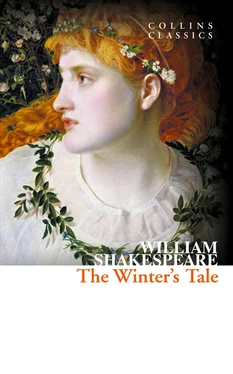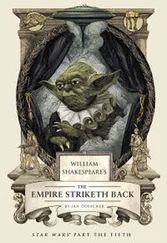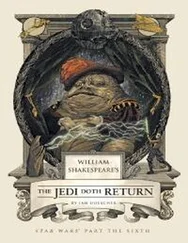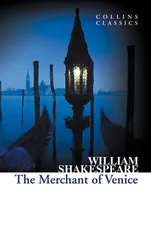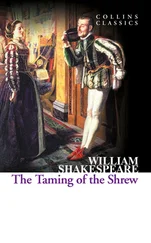THE ALEXANDER SHAKESPEARE
General Editor
R.B. Kennedy
Additional notes and editing
Mike Gould
THE WINTER’S TALE
William Shakespeare
CONTENTS
Title Page THE ALEXANDER SHAKESPEARE General Editor R.B. Kennedy Additional notes and editing Mike Gould
Prefatory Note Prefatory Note This Shakespeare play uses the full Alexander text. By keeping in mind the fact that the language has changed considerably in four hundred years, as have customs, jokes, and stage conventions, the editors have aimed at helping the modern reader – whether English is their mother tongue or not – to grasp the full significance of the play. The Notes, intended primarily for examination candidates, are presented in a simple, direct style. The needs of those unfamiliar with British culture have been specially considered. Since quiet study of the printed word is unlikely to bring fully to life plays that were written directly for the public theatre, attention has been drawn to dramatic effects which are important in performance. The editors see Shakespeare’s plays as living works of art which can be enjoyed today on stage, film and television in many parts of the world.
The Theatre in Shakespeare’s Day The Theatre in Shakespeare’s Day On the face of it, the conditions in the Elizabethan theatre were not such as to encourage great writers. The public playhouse itself was not very different from an ordinary inn-yard; it was open to the weather; among the spectators were often louts, pickpockets and prostitutes; some of the actors played up to the rowdy elements in the audience by inserting their own jokes into the authors’ lines, while others spoke their words loudly but unfeelingly; the presentation was often rough and noisy, with fireworks to represent storms and battles, and a table and a few chairs to represent a tavern; there were no actresses, so boys took the parts of women, even such subtle and mature ones as Cleopatra and Lady Macbeth; there was rarely any scenery at all in the modern sense. In fact, a quick inspection of the English theatre in the reign of Elizabeth I by a time-traveller from the twentieth century might well produce only one positive reaction: the costumes were often elaborate and beautiful. Shakespeare himself makes frequent comments in his plays about the limitations of the playhouse and the actors of his time, often apologizing for them. At the beginning of Henry V the Prologue refers to the stage as ‘this unworthy scaffold’ and to the theatre building (the Globe, probably) as ‘this wooden O’, and emphasizes the urgent need for imagination in making up for all the deficiencies of presentation. In introducing Act IV the Chorus goes so far as to say: … we shall much disgrace With four or five most vile and ragged foils, Right ill-dispos’d in brawl ridiculous, The name of Agincourt, (lines 49–52) In A Midsummer Night’s Dream (Act V, Scene i) he seems to dismiss actors with the words: The best in this kind are but shadows. Yet Elizabeth’s theatre, with all its faults, stimulated dramatists to a variety of achievement that has never been equalled and, in Shakespeare, produced one of the greatest writers in history. In spite of all his grumbles he seems to have been fascinated by the challenge that it presented him with. It is necessary to re-examine his theatre carefully in order to understand how he was able to achieve so much with the materials he chose to use. What sort of place was the Elizabethan playhouse in reality? What sort of people were these criticized actors? And what sort of audiences gave them their living?
Shakespeare: A Timeline
Life & Times
Money in Shakespeare’s Day
Introduction
List of Characters
Act One
Scene I
Scene II
Act Two
Scene I
Scene II
Scene III
Act Three
Scene I
Scene II
Scene III
Act Four
Scene I
Scene II
Scene III
Scene IV
Act Five
Scene I
Scene II
Scene III
Shakespeare: Words and Phrases
Copyright
About the Publisher
This Shakespeare play uses the full Alexander text. By keeping in mind the fact that the language has changed considerably in four hundred years, as have customs, jokes, and stage conventions, the editors have aimed at helping the modern reader – whether English is their mother tongue or not – to grasp the full significance of the play. The Notes, intended primarily for examination candidates, are presented in a simple, direct style. The needs of those unfamiliar with British culture have been specially considered.
Since quiet study of the printed word is unlikely to bring fully to life plays that were written directly for the public theatre, attention has been drawn to dramatic effects which are important in performance. The editors see Shakespeare’s plays as living works of art which can be enjoyed today on stage, film and television in many parts of the world.
An Elizabethan playhouse . Note the apron stage protruding into the auditorium, the space below it, the inner room at the rear of the stage, the gallery above the inner stage, the canopy over the main stage, and the absence of a roof over the audience.
The Theatre in Shakespeare’s Day
On the face of it, the conditions in the Elizabethan theatre were not such as to encourage great writers. The public playhouse itself was not very different from an ordinary inn-yard; it was open to the weather; among the spectators were often louts, pickpockets and prostitutes; some of the actors played up to the rowdy elements in the audience by inserting their own jokes into the authors’ lines, while others spoke their words loudly but unfeelingly; the presentation was often rough and noisy, with fireworks to represent storms and battles, and a table and a few chairs to represent a tavern; there were no actresses, so boys took the parts of women, even such subtle and mature ones as Cleopatra and Lady Macbeth; there was rarely any scenery at all in the modern sense. In fact, a quick inspection of the English theatre in the reign of Elizabeth I by a time-traveller from the twentieth century might well produce only one positive reaction: the costumes were often elaborate and beautiful.
Shakespeare himself makes frequent comments in his plays about the limitations of the playhouse and the actors of his time, often apologizing for them. At the beginning of Henry V the Prologue refers to the stage as ‘this unworthy scaffold’ and to the theatre building (the Globe, probably) as ‘this wooden O’, and emphasizes the urgent need for imagination in making up for all the deficiencies of presentation. In introducing Act IV the Chorus goes so far as to say:
… we shall much disgrace
With four or five most vile and ragged foils,
Right ill-dispos’d in brawl ridiculous,
The name of Agincourt, (lines 49–52)
In A Midsummer Night’s Dream (Act V, Scene i) he seems to dismiss actors with the words:
The best in this kind are but shadows.
Yet Elizabeth’s theatre, with all its faults, stimulated dramatists to a variety of achievement that has never been equalled and, in Shakespeare, produced one of the greatest writers in history. In spite of all his grumbles he seems to have been fascinated by the challenge that it presented him with. It is necessary to re-examine his theatre carefully in order to understand how he was able to achieve so much with the materials he chose to use. What sort of place was the Elizabethan playhouse in reality? What sort of people were these criticized actors? And what sort of audiences gave them their living?
Читать дальше
